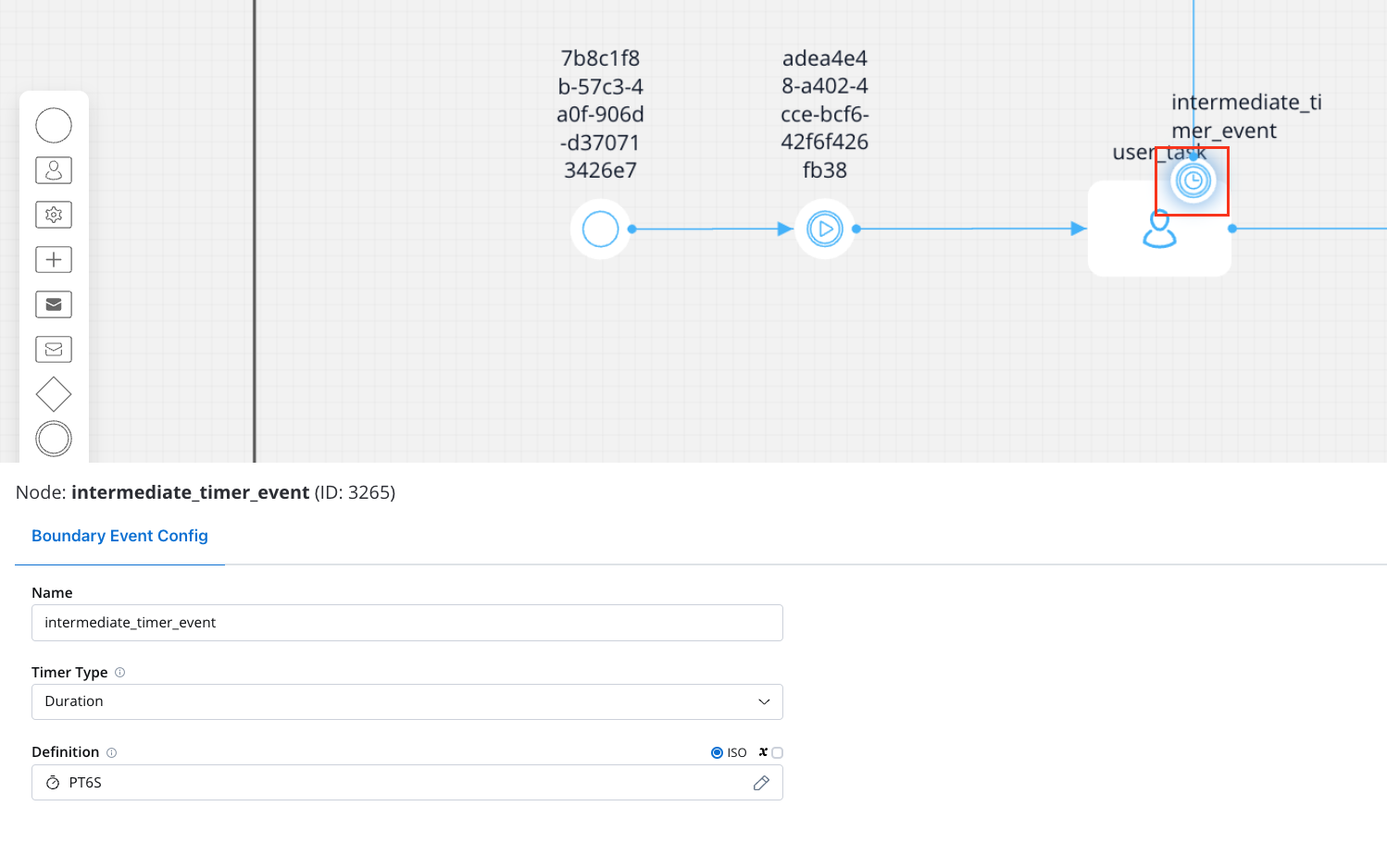This event is used to integrate time-related triggers into workflows, allowing processes to respond automatically to time-sensitive requirements. It is particularly useful for enforcing deadlines, scheduling periodic actions, or sending notifications, ensuring that time-critical steps are seamlessly incorporated into the overall process design.ary Events are utilized to incorporate time-related conditions into processes, enabling actions to be taken at specified time intervals, deadlines, or specific dates. This capability is especially valuable for scenarios where time-sensitive actions or notifications need to be integrated seamlessly within process flows.
Compatibility matrix for Timer Events
Timer Events can be applied to various contexts within BPMN processes. The table below outlines their compatibility with different node types:
| Node Type | Timer Event - Interrupting | Timer Event - Non-Interrupting |
|---|
| User Task | Yes | Yes |
| Service Task | Yes | Yes |
| Send Message Task | Yes | Yes |
| Receive Message Task | Yes | Yes |
| Start Embedded Subprocess | No | No |
| Call Activity | Yes | Yes |
Timer boundary event - interrupting
A Timer Boundary Event is an event attached to a specific activity (task or subprocess) that is triggered when a specified time duration or date is reached. It can interrupt the ongoing activity and initiate a transition.
Configuration
For Timer Boundary Events - Interrupting, the following values can be configured:
| Field | Validations | Accepted Values |
|---|
| Definition | Mandatory | ISO 8601 formats (date/duration) |
| | Process param |
General rules
- When the token enters the parent activity, a scheduler is set, and it waits for the timer event to be triggered.
- When the timer is triggered, the ongoing activity is terminated, and the process continues with the defined transition.
Timer boundary event - non-interrupting
A Timer Boundary Event is an event attached to a specific activity (task or subprocess) that is triggered when a specified time duration or date is reached. It can trigger independently of the ongoing activity and initiate a parallel path.
Configuration
For Timer Boundary Events - Non-Interrupting, the following values can be configured:
| Field | Validations | Accepted Values |
|---|
| Definition | Mandatory | ISO 8601 formats (date/duration) |
| | Process param |
General rules
- When a token arrives at a node with a Timer Boundary Event - Non-Interrupting associated:
- A trigger is scheduled, but the current token execution remains unaffected.
- When the token enters the parent activity, a scheduler is set, and it waits for the timer event to be triggered.
- If the timer is a cycle, it is rescheduled for the specified number of repetitions.
- The scheduler is canceled if the token leaves the activity before it is triggered.
Last modified on January 26, 2026




